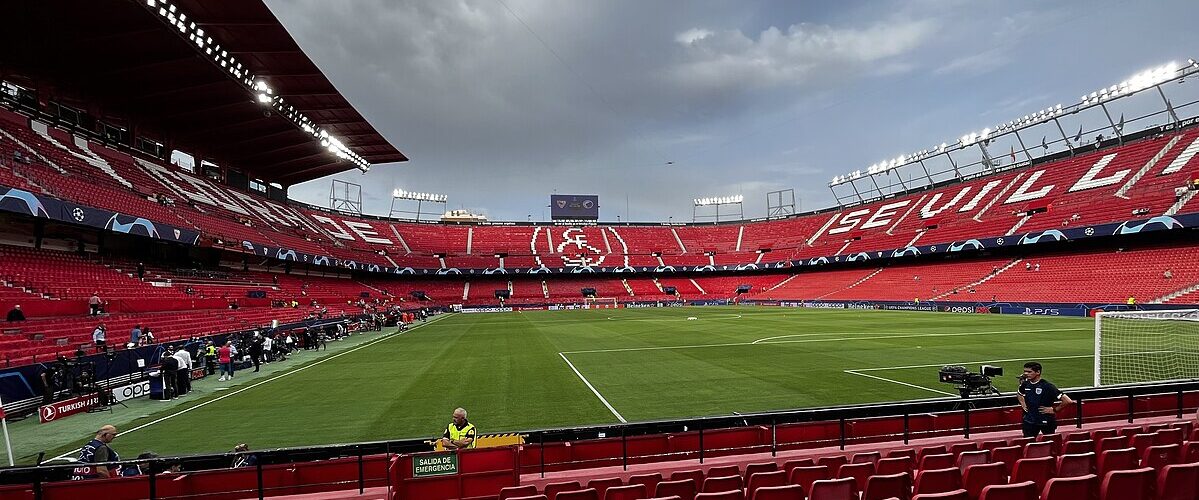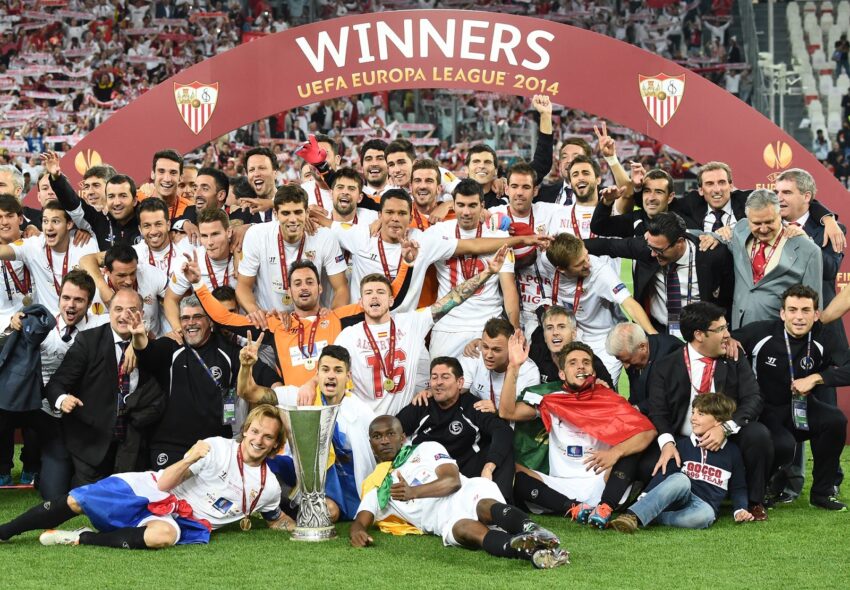Sevilla FC, one of Spain’s most storied football clubs, has played a pivotal role in shaping the landscape of Spanish football, particularly in relation to the national team’s success. From nurturing talented players to contributing to the development of a winning mentality, Sevilla FC’s influence extends far beyond the confines of its own stadium. This blog post delves into the club’s rich history, its contributions to Spanish football, and its significant impact on the national team’s achievements.
A Brief History of Sevilla FC
Founded in 1890, Sevilla FC is one of the oldest football clubs in Spain. Over the years, the club has established itself as a powerhouse in both domestic and European competitions. With a passionate fan base and a rich history, Sevilla has secured numerous titles, including multiple UEFA Europa League trophies, making them the most successful club in the competition’s history.
The club’s commitment to developing homegrown talent has been a hallmark of its success. Sevilla’s youth academy, La Fábrica, has produced a remarkable number of players who have gone on to represent not only Sevilla FC but also the Spanish national team.
Sevilla FC and Spanish Football Development
Sevilla FC’s contributions to Spanish football can be seen through several key aspects:
1. Youth Development and Talent Nurturing
One of Sevilla’s most significant contributions to Spanish football is its emphasis on youth development. The club’s academy, La Fábrica, has become renowned for producing some of the finest talents in Spanish football. Players such as Jesús Navas, Sergio Ramos, and Alberto Moreno have all come through Sevilla’s ranks and made significant impacts at both club and national team levels.
- Jesús Navas: A product of Sevilla’s youth academy, Navas made his first-team debut in 2003 and went on to become one of the best right wingers in Europe. His pace, dribbling ability, and crossing made him an integral part of Sevilla’s success during his time at the club. Navas has also been a key player for the Spanish national team, contributing to their triumphs in the 2010 FIFA World Cup and UEFA Euro 2008 and 2012.
- Sergio Ramos: Another Sevilla youth product, Ramos is widely regarded as one of the best defenders in football history. His leadership skills and defensive prowess have been instrumental in Spain’s success on the international stage. After making his debut for Sevilla in 2004, Ramos quickly established himself as a key player for the club before moving to Real Madrid, where he continued to achieve great success.
- Alberto Moreno: Moreno, a talented left-back, emerged from Sevilla’s youth ranks and made a significant impact in his early years. His performances for Sevilla earned him a call-up to the national team, where he showcased his attacking abilities.
2. Tactical Innovations and Playing Style
Sevilla FC has been at the forefront of tactical innovations in Spanish football. The club’s commitment to playing attractive, attacking football has influenced the national team’s style. Managers like Juande Ramos and Unai Emery have emphasized possession-based football, high pressing, and fluid attacking movements, principles that align with the philosophy adopted by the Spanish national team.
The development of a cohesive playing style at Sevilla has contributed to the seamless integration of players into the national team setup. Players coming from Sevilla are often well-prepared to adapt to the demands of international football, having honed their skills in a similar tactical environment.
3. Success in European Competitions
Sevilla FC’s success in European competitions has elevated the club’s profile and, by extension, Spanish football as a whole. The club’s triumphs in the UEFA Europa League (winning the tournament six times as of 2021) have showcased the quality of Spanish football on the continental stage. This success has helped boost the reputation of Spanish clubs and contributed to the national team’s strength.
The experience gained from competing in Europe has proven invaluable for Sevilla’s players, many of whom have represented Spain at various levels. The pressure and intensity of European competitions prepare players for the rigors of international tournaments, making them more effective when representing the national team.
Sevilla FC’s Players in the National Team
Sevilla FC has been a consistent source of talent for the Spanish national team. Many players who have donned the red and white jersey of Sevilla have gone on to make significant contributions to Spain’s international success.
1. Key Contributions from Sevilla Players
Several Sevilla FC players have played crucial roles in Spain’s major tournament victories:
- Fernando Llorente: The forward was part of the squad that won the 2010 FIFA World Cup. His physical presence and goal-scoring ability made him an essential asset during the tournament. Llorente’s time at Sevilla helped him hone his skills, ultimately contributing to Spain’s success.
- Álvaro Negredo: Negredo’s impressive performances at Sevilla earned him a call-up to the national team, where he played a vital role in Spain’s triumph in the 2012 UEFA Euro. His strength and ability to score crucial goals were instrumental during the tournament.
- Cesc Fàbregas: Although not a product of Sevilla’s academy, Fàbregas played for Sevilla during his youth before moving to Arsenal. He has been an essential part of the national team’s success, contributing to their victories in the World Cup and European Championships. His time at Sevilla helped shape his development as a player.
2. A Foundation of Success
The integration of Sevilla players into the national team has created a strong foundation for success. The understanding and chemistry developed at the club level translate seamlessly into the international arena. Players familiar with each other’s playing styles and strengths can adapt more quickly to the demands of the national team setup.
The influence of Sevilla FC on the national team extends beyond individual players. The club’s approach to player development has contributed to a culture of excellence that permeates Spanish football. The emphasis on technical ability, tactical awareness, and physical fitness established at Sevilla is mirrored in the national team’s training and preparation.
Sevilla FC’s Impact on Spanish Football Culture
Sevilla FC’s contributions to Spanish football go beyond player development and tactical innovations. The club has played a vital role in shaping football culture in Spain, particularly in Andalusia.
1. Regional Pride and Rivalries
Sevilla FC’s fierce rivalry with Real Betis, known as the Seville derby, has become a defining feature of Andalusian football culture. The derby is one of the most intense in Spain, showcasing the passion and dedication of both sets of fans. This local pride contributes to the overall growth of football in the region and creates a competitive atmosphere that benefits both clubs.
2. Promotion of Local Talent
Sevilla FC has been instrumental in promoting local talent and providing opportunities for players from the region. The club’s commitment to scouting and developing young players from Andalusia has helped ensure that local talent is nurtured and given a chance to shine on the national and international stages.
The emphasis on homegrown talent has not only strengthened Sevilla but also enriched the Spanish national team. Local players who rise through the ranks of Sevilla often embody the spirit of Andalusian football, characterized by flair, creativity, and resilience.
Challenges and Triumphs
While Sevilla FC has made significant contributions to Spanish football, the club has faced its share of challenges. The competitive nature of La Liga, coupled with the financial power of clubs like Real Madrid and Barcelona, has made it difficult for Sevilla to consistently compete for the league title. However, the club’s resilience and determination have allowed it to thrive in European competitions.
The success in the UEFA Europa League has provided a platform for the club to showcase its quality on a global stage. Sevilla’s ability to attract top talent, coupled with its commitment to player development, ensures that the club remains competitive both domestically and internationally.
The Future of Sevilla FC and Spanish Football
As Spanish football continues to evolve, Sevilla FC is well-positioned to remain a key player in shaping its future. The club’s emphasis on youth development, tactical innovation, and competitive success will play a crucial role in the national team’s continued success on the international stage.
1. Investment in Youth Development
Sevilla FC’s ongoing commitment to its youth academy will be critical in ensuring a steady stream of talent for both the club and the national team. The investment in facilities, coaching staff, and scouting networks will help nurture the next generation of football stars.
By prioritizing player development, Sevilla can continue to be a key contributor to the Spanish national team’s success, providing players who are technically skilled, tactically astute, and mentally resilient.
2. Continued Success in European Competitions
Sevilla FC’s track record in European competitions speaks volumes about the club’s ability to compete at the highest level. As the club continues to aim for European glory, the experience gained from these campaigns will benefit both Sevilla and the Spanish national team.
The pressure and intensity of European football prepare players for the rigors of international tournaments, ensuring they are battle-hardened and ready to represent their country.
Sevilla FC’s Enduring Legacy in Spanish Football
Sevilla FC’s contributions to Spanish football are immeasurable. From developing world-class players to influencing the national team’s style of play, Sevilla has left an indelible mark on the landscape of Spanish football. The club’s commitment to youth development, tactical innovation, and success in European competitions has solidified its status as a cornerstone of Spanish football.
As Spain continues to compete on the international stage, the influence of Sevilla FC will remain a key factor in the national team’s success. The legacy of Sevilla FC is not just about the trophies won or the players developed; it is about the spirit of football that unites fans, players, and clubs across the nation.
As we look to the future, Sevilla FC will undoubtedly continue to play a vital role in shaping the next chapter of Spanish football, ensuring that its contributions to the national team’s success endure for generations to come.

